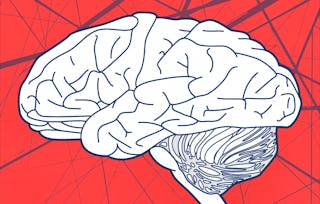The course "Practical Neuromarketing Research" offers a deep dive into the intersection of behavioral science and neuromarketing, equipping you with the tools and knowledge to influence consumer decisions effectively. You will explore key behavior change models, including the neurocognitive influence model, and gain hands-on experience with biometric and neuroimaging tools for data collection. As you develop your research protocols, you’ll learn to apply ethical guidelines to human subject research, ensuring compliance with university and federal standards. By analyzing real-world data, you'll gain practical insights into the mechanisms behind influence, persuasion, and counter-arguing.

Practical Neuromarketing Research
Ends soon: Gain next-level skills with Coursera Plus for $199 (regularly $399). Save now.

Practical Neuromarketing Research
This course is part of Neuromarketing Specialization


Instructors: Ian McCulloh
Included with
Recommended experience
What you'll learn
Learn classical models of behavior change and the neurocognitive influence model, along with their application in neuromarketing research.
Understand ethical standards for human subjects research, including certification to conduct experimentation in compliance with guidelines.
Develop experimental designs and research protocols, ensuring ethical considerations are integrated in neuromarketing studies.
Gain hands-on experience with biometric, neuroimaging, and psycho-physiological tools to collect and analyze data for behavioral insights.
Skills you'll gain
Details to know

Add to your LinkedIn profile
12 assignments
See how employees at top companies are mastering in-demand skills

Build your subject-matter expertise
- Learn new concepts from industry experts
- Gain a foundational understanding of a subject or tool
- Develop job-relevant skills with hands-on projects
- Earn a shareable career certificate

There are 5 modules in this course
This course explores models of behavior change, including classical theories and the neurocognitive influence model, with a focus on their application in neuromarketing research. Learners will learn ethical standards for human subjects research and develop research protocols that align with university and federal guidelines. The course also covers experimental design, data collection using biometric and neuroimaging tools, and the analysis of research data. Key skills in counter-arguing and its neural basis are explored within the context of influence theory. Hands-on experience in research analysis and protocol development will be emphasized throughout.
What's included
2 readings1 plugin
This module will introduce the science of influence and persuasion. Understand what drives peoples' behavior and the theory behind influence interventions. These concepts are somewhat counter-intuitive, yet necessary to effectively advance policies, lead teams, and counter the threats of mis and disinformation.
What's included
7 videos3 readings3 assignments1 plugin
This module will explore ethical considerations in human subjects research and neural marketing. You will obtain certification to conduct and support human subjects experimentation.
What's included
6 videos3 readings3 assignments
This module will learn to analyze data collected from a range of advanced tools, including biometric, psycho-physiological, and neuroimaging instruments.
What's included
5 videos2 readings3 assignments
In this module you will be introduced to a portion of a cross-cultural neuroscience experiment to understand neural synchrony/homophily among biased, opposing sectarian pairs of individuals working on a joint task together. This will introduce the capstone final project. The data was collected shortly after the fall of ISIS in Iraq as politics were at a contentious time. Due to funding re-prioritization, the collected data was never fully analyzed, so there are opportunities to discover new and interesting things and publish findings in academic publications. This is where the course gets really fun, interesting, and creative.
What's included
8 videos2 readings3 assignments1 ungraded lab
Earn a career certificate
Add this credential to your LinkedIn profile, resume, or CV. Share it on social media and in your performance review.
Instructors


Offered by
Explore more from Psychology

Copenhagen Business School
 Status: Free Trial
Status: Free TrialJohns Hopkins University
 Status: Preview
Status: PreviewCopenhagen Business School
 Status: Free Trial
Status: Free TrialJohns Hopkins University
Why people choose Coursera for their career





Open new doors with Coursera Plus
Unlimited access to 10,000+ world-class courses, hands-on projects, and job-ready certificate programs - all included in your subscription
Advance your career with an online degree
Earn a degree from world-class universities - 100% online
Join over 3,400 global companies that choose Coursera for Business
Upskill your employees to excel in the digital economy
Frequently asked questions
To access the course materials, assignments and to earn a Certificate, you will need to purchase the Certificate experience when you enroll in a course. You can try a Free Trial instead, or apply for Financial Aid. The course may offer 'Full Course, No Certificate' instead. This option lets you see all course materials, submit required assessments, and get a final grade. This also means that you will not be able to purchase a Certificate experience.
When you enroll in the course, you get access to all of the courses in the Specialization, and you earn a certificate when you complete the work. Your electronic Certificate will be added to your Accomplishments page - from there, you can print your Certificate or add it to your LinkedIn profile.
Yes. In select learning programs, you can apply for financial aid or a scholarship if you can’t afford the enrollment fee. If fin aid or scholarship is available for your learning program selection, you’ll find a link to apply on the description page.
More questions
Financial aid available,

